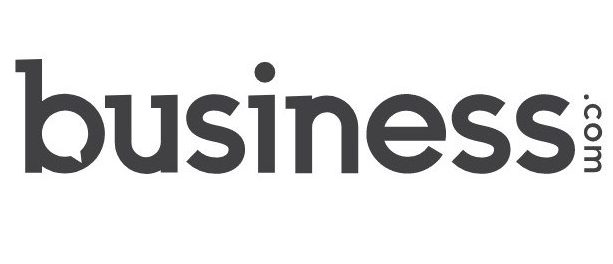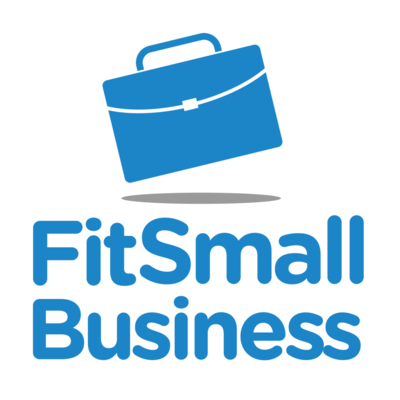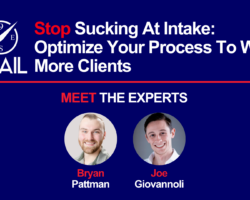Tip of the Law – The ROI of Culture and Retention | Lauren Lynch
Date: January 10, 2025
In this episode of Tip of the Law, Joe Giovannoli and Lauren Lynch discuss actionable strategies for fostering a positive workplace culture and enhancing employee engagement.
As the legal industry continues to evolve, forward-thinking firms are recognizing the critical importance of workplace culture in attracting and retaining top talent. In a recent episode of the Tip of the Law podcast, host Joe Giovannoli sat down with Lauren Lynch, the Chief Marketing and Culture Officer at Mandelbaum Barrett PC, to explore how culture can be a powerful differentiator for law firms.
Lauren emphasized that a firm’s culture and strong marketing efforts go hand-in-hand. “Your employees are literally the most vital asset in your marketing arsenal,” she explained, reinforcing that marketing and culture are a major way for law firms to differentiate themselves from the pack.
The COVID-19 pandemic served as a catalyst for many firms to reevaluate their approach to workplace culture. For Mandelbaum Barrett, this led to the creation of Lauren’s unique dual role, blending marketing expertise with a dedicated focus on cultivating a positive and supportive work environment.
“[Our lives] really changed over those couple of years,” Lauren noted. “And so I was approached and asked, ‘Would you want to also focus on culture, and what would that look like?'” The decision to prioritize culture was driven by alarming industry trends, including high rates of burnout and lawyers leaving the legal field in droves.
As a working parent herself, Lauren understood the importance of work-life balance and sought to implement initiatives that would empower Mandelbaum Barrett’s employees to thrive both professionally and personally. “I really started to think, ‘How can I make a difference, and what can we do differently?'” she recalled.
One of Lauren’s key strategies has been to involve the firm’s marketing team early and often in the recruitment and onboarding process. “I personally think the marketing team should be involved pretty early on in the recruiting process,” she emphasized. It’s difficult, she explained, for the marketing team to have to scramble after a hire is made, bringing with them changes that the team was unprepared for.
By proactively engaging the marketing team, Mandelbaum Barrett is able to ensure new hires are properly supported and integrated into the firm’s culture. This includes everything from creating customized onboarding experiences to facilitating cross-selling opportunities and developing targeted marketing initiatives.
Beyond the recruitment phase, Lauren and her team have implemented a range of innovative programs to foster a sense of community and belonging among Mandelbaum Barrett’s employees. From monthly “Breakfast with Bill” sessions with CEO and partner Bill Barrett to a “shadow employee” onboarding initiative, the firm is intentional about creating touchpoints that allow new hires to connect with their colleagues and feel valued from day one.
As Joe noted, these types of culture-driven efforts are often overlooked in the legal industry, where the focus has traditionally been on billable hours and client service. However, Lauren and Mandelbaum Barrett are proving that by prioritizing employee satisfaction and well-being, firms can unlock a competitive advantage that extends far beyond the bottom line.
“Culture eats strategy for breakfast,” Lauren asserted, echoing the famous words of management guru Peter Drucker. “You can strategize, you can have all the things going for you, but if you’re having high turnover and your employees don’t feel appreciated, it’s tough.”
As the legal landscape continues to evolve, firms that embrace a holistic, employee-centric approach to culture and marketing will be well-positioned to attract and retain the best and brightest talent. Mandelbaum Barrett’s journey serves as an inspiring example of what’s possible when firms are willing to think outside the box and put their people first.
Key takeaways
- Culture is critical for differentiating law firms and retaining top talent. Firms need to prioritize building a positive workplace culture and ensuring employee engagement.
- Involving the marketing team early in the recruitment and onboarding process is crucial. This helps ensure new hires are properly supported and integrated into the firm.
- Consistent internal communication that aligns with the firm’s culture and values is important for employee satisfaction and retention. Firms should strive for cohesive messaging across departments.
- Implementing creative onboarding and employee engagement initiatives, like a “shadow employee” program or monthly new hire breakfasts, can go a long way in making new employees feel welcomed and valued.
Episode Transcript
Joe Giovannoli
You’re listening to the Tip of the Law podcast, where legal insights meet practical advice. In each episode, we bring you stories, insights and tips straight from the legal industry’s brightest minds. I’m your host, Joe Giovannoli, founder and CEO of 9Sail. And this week, I’m speaking with Lauren Lynch, Chief Marketing and Culture Officer at Mandelbaum Barrett PC. With over 20 years of experience in the legal industry, Lauren has a deep understanding of how to elevate a firm’s presence and create a thriving work environment. Before joining Mandelbaum, she held executive roles at several top law firms, including Friar Levitt, Brack Eichler, and Martin, Clearwater & Bell. Lauren is passionate about building a positive workplace culture and ensuring employee engagement while also leading the firm’s marketing strategy. Her efforts have been instrumental in the firm’s recognition as one of New Jersey’s best places to work in 2019 and 2022. Lauren’s unique blend of marketing acumen and culture-building expertise provides valuable insights into creating a successful and supportive work environment without further ado. Let’s get started.
So I’m really excited today I have Lauren Lynch here. Lauren, thank you so much for joining me. I really appreciate it.
Lauren Lynch
Thank you so much for having me, Joe.
Joe Giovannoli
So Chief Marketing and Culture Officer, CMCO, one of the coolest roles I think I’ve ever heard of in a law firm, and I’m pretty sure you get to take full credit for that. That’s awesome. But tell me how culture plays into your role and why. Why is culture so important to you?
Lauren Lynch
Sure. So the New Jersey Law Journal just released an interesting statistic, and it is that there are 26,000 law firms in New Jersey. So with 26,000 law firms in New Jersey, how do you differentiate yourself? Your culture and strong marketing efforts go hand in hand, if you think about it, your employees are literally the most vital asset in your marketing arsenal.
Joe Giovannoli
Yeah, no, you’re so right. And I think most companies get that. There’s been a real push over the last, I don’t know, 10 years about, you know, culture, workplace culture, work-life balance. And law firms typically don’t really live by that, right? So, I’m so curious, and for whatever you can talk to us about, how did the culture role, chief culture role, come to be at Mandelbaum?
Lauren Lynch
Sure. So in my role as CMO with the firm, a lot of it had to do with the internal stuff that I was doing and working on different events and really sort of talking to our leadership about why it’s so important. And then you had COVID hit, right? And then in a post COVID world, what happens? People are coming back in the office, people are doing core days. Your life really changed over those couple of years. And so I was approached and asked, Would I want to also focus on culture, and what would that look like? And so we had a lot of really interesting discussions of, sort of how marketing and culture align in a law firm. And experiences of, I’ve been in legal marketing for 20 years, so I’ve seen a lot of good and bad in terms of culture. And the statistics keep coming out. Lawyers are burnt out. Legal staff are burnt out. People are leaving the legal industry in droves. So I really started to think, you know, how can I make a difference, and what can we do differently? And how do we raise the bar for our employees and for me personally, I mean, I’ve got two kids. I like to coach. I like to, you know, make sure I’m on the parent council and the HSA and things like that. So I really started to think, as a working parent, I love my job and I love my career, but is there any such thing as work-life balance, and how do I help others to get that? And so it was sort of a conversation of, well, if you could have any title, what would you want it to be? And I said, Well, I kind of like the way CMCO is. It’s chief marketing and culture, because they really are hand in hand. They really do. And it just sort of works.
Joe Giovannoli
Yeah, and I’ve, I love that. And I’ve heard in, especially in, like, tech and the SAS world, and, you know, tech startup, you know, I’ve heard of, you know, Chief Culture Officer, I’ve heard of Chief People Officer, I’ve heard of Chief, Chief People Pleaser. I’ve heard of so many different roles, right? And I love, I love the creativity that people and they get both. Everybody gets bonus points for that. Everybody gets bonus points for that. I give you bonus points for coming up with CMCO, you know. But for a firm like mine, an agency like mine, it is so incredibly important to me to make sure my people are happy. And, you know, it is the most important thing, even above, you know, revenue and profit, right? It is about the happiness and the satisfaction of my people. Because if they stay and they are happy and they are excited about where they work, everything comes together, right?
Lauren Lynch
Absolutely, absolutely, they are the biggest part of your brand, right? I mean, they’re out there on social media. They’re talking about where they work. They’re sharing information about your company. And if you think about it nowadays, I feel like clients want to know who you are as a company. They really, actually care, because they’re making the effort in every other industry, and especially if you’re a law firm, you’ve got multiple industries that you’re supporting through your services. They want to know, what are you doing for your employees? And if I’m looking to join a company, I’m going to go on that company’s social media. I’m going to see, you know, what they’re doing for their employees. Do they support team building, collaboration? What’s the message that’s being put out there from that company? I think now it’s more important than ever.
Joe Giovannoli
I cannot remember the stat that I read, but it was jarring to me, and I want to say it was like 40 or 50% of professional service firm buyers– so people that buy professional services– look at how often somebody jumped around from firm to firm as a factor in making a decision of who they hire. And I thought that that was really interesting for me. And I feel like that’s something that a lot of law firms don’t even pay any attention to, right? It’s, you know, you hire a lateral that comes in, they’re there for a year, and then they leave and they go somewhere else, and in the firm’s mind, it’s, oh, well, you know, they may take their book of business or whatever the case may be, but there’s a bigger problem, which is that, if it’s a revolving door from the outside, why would somebody want to hire the firm to do their work, if they’re not going to have a consistent person that they can talk to, right?
Lauren Lynch
Absolutely. I mean, I think it’s external in those ways. And I think the other thing that firms aren’t looking at is internally. Was that person a mentor to other associates? What role did that person play on committees and going to events and things like that? You’re losing a lot more than just a body. You’re losing sort of that, that vibe with that person when that person leaves, and the cost to have to retrain and bring somebody new in, and finding the right fit– you’re taxing your HR department with that. The more turnover, the harder it is for them, the less time that they’re able to spend on employee initiatives and things like that. So there is certainly a real cost to turnover.
Joe Giovannoli
Yeah, well, and let’s, let’s talk about that a little bit further to you know, obviously, the longer, and I know this is true in the legal space, the longer an attorney is at the firm, and the longer they’re with their clients, obviously, you know, billable rates go up for, you know, across the board, and you could charge more for their services. And there’s an opportunity to expand into other areas of a client’s, you know, ecosystem, right? So, what other areas do you think turnover, high turnover rate impacts, outside of just, you know, the typical things that we just listed there. What other things do you think are impacted by turnover?
Lauren Lynch
Yes. I mean, I think, you know, other than, like, longevity of clients, so a lot of firms have generational relationships with clients, and I think that can very easily be impacted. I think also the entire culture of your organization can turn– I mean, I’ve seen in places where there was a partner that was really heavily involved in business development activities for the firm and helping to nurture and mentor other relationships and things like that. So it’s more than just your book of business that’s going with that attorney. I think it’s really important to also look at the other areas that that person is in. Was there cross selling going on? Were there relationships within the firm that are now going to be severed when you’ve got that. I also think training and education, you’re spending a lot of money on your attorneys and your staff to get them trained and making sure that they have the skills that the technology that you need, and then that is all then gone when they leave, plus the time that your IT team took on training them on all your programming. It’s just a lot of wasted hours that then build up and add up when you’ve got that high of a turnover rate, and it’s frustrating to see the off boarding emails every day.
Joe Giovannoli
Yeah, well, and forget about the off boarding emails, but think about the, you know, in this culture. I love culture because it bleeds into HR, it bleeds into marketing, it bleeds into business development, because there it every way, in every way, you know, there’s something that, when there’s turnover, there’s something that needs to be done in multiple departments, right? And so, you know, I look at, you know, turnover as probably the biggest, the single, the single biggest time suck at any company, because, and it’s also, by the way, the easiest thing to fix, right? Because you can do some very basic stuff, especially, especially if firms that have middle market, you know, size, I can understand sometimes on the smaller firms, they maybe not, they don’t have the dollars to spend, or they don’t have the resources to be able to cover people the way that they may want to. But. But especially mid market firms, like, there’s a real opportunity to make sure that people are happy, right, and lead with culture, right? And I love the culture topic, because I can talk as an agency owner about all the things that we’ve done to make culture such a big part of what we do. But you know, we would be nothing without our people, and that is so incredibly true of just about any service business, because that is what you’re selling is, is the great people that you have and how happy they are at what they do, for what they do, absolutely.
Lauren Lynch
And that’s why I’m a big believer in exit interviews. I think that it is so important to talk to your staff or your attorneys on the way out to find out, have candid conversations with them. And look, they may not be honest, but you’ve got to at least make that effort and try and figure that out. And I’m also a huge fan of check ins. And I don’t think it should just be at the end of the year when your bonus is on the line. I think that it’s incredibly important to check in with your team multiple times, whether you’re going to do surveys. I mean, for me personally, I like to take my team out to lunch every quarter and just check in and say, Hey, how’s it going? And I like to do one on ones. I like to know, is there something that I can help more with? Are there areas where you want to get different training, like you’ve been here for six months? Okay? Normally, a lot of companies do that, sort of 30, 60, 90, and then the employee is off on their own, and it’s just that December, end of the year that you’re gonna review. I’m a big fan of finding out, you know, throughout the year, how are you doing? And it’s leading with empathy. I think it’s so important to understand where your employees are coming from, and meet them at the middle.
Joe Giovannoli
Yeah, again, I love talking about culture, especially with folks at law firms, because there’s so much daylight in between the legal space, the accounting space and agencies, tech, whatever, right? Because it’s just, it’s just a different mindset. And, you know, granted, legal has been around longer than pretty much most of those industries, right? So I understand it, right? It’s a bit of an older mentality. But, you know, the thought of doing a 30, 60, 90, and then letting people run off and do their own thing actually gives me anxiety. You know, my team, we meet with, they meet with their manager monthly, and they do quarterly coaching conversations. We don’t do performance reviews. We do coaching conversations just to make sure that it’s a two way conversation where, you know, employee can tell manager about things that they love that they’re doing and they hate that they’re doing nicer, of course, and vice versa, right? And it’s, and it really is, just a conversation about, how can we improve together, and then how can manager and company help employee to hit their growth goals, right? Personal, professional, all you know, we look at them both and we help them with both, right? And I know that that’s something that I know you’re working, you know, to make that happen internally there. But absolutely, it boggles my mind that when you have a people business that you are running, how that’s not a core focus.
Lauren Lynch
Absolutely, because I mean, I think for me, the big thing is, is that, you know, we all talk about work life balance and things that we want, but I gotta tell you, work life balance is different for every single person, it is different for every member of my team, every member of the firm things that they want and things that they need. And if you’re not having those conversations and those check ins, you’re probably doing it wrong, and you’re not meeting their expectations. And I think that’s a big reason for total turnover, and a big reason that people leave is because their expectations are not being met. But you don’t know what those expectations are unless you’re talking to them and you’re talking to them and you’re having those conversations.
Joe Giovannoli
Yeah, absolutely. So what is your favorite culture related thing that you guys do, or that you, that the firm does, that you find as your favorite for new employees?
Lauren Lynch
So for new employees, we have a pretty robust onboarding program, and we are working to expand upon it, and it’s based off of a recent discussion that we have. So we do what’s called, we call it Breakfast with Bill. Bill’s our CEO, and so we have groups of employees, and they go and they sit down and they talk about it, and they talk about what things he can do to improve what we can do as an organization. And it’s just these little small groups. And then one of the things that came out of it that I thought was so cool that we’re going to work on doing is a shadow employee program. So we have mentor programs for our attorneys, where as an associate, you’ll get a more senior attorney as a mentor, and then we do all these great events for them. But for staff, when you’re coming in, somebody that for your first week here at the firm, you can shadow and you can actually see where things are, how to get a letter that people, you know, the way that people like to write their letters, their correspondence, things like that. And it really, then, I think helps to have a friend at, you know, you’re going to a new company. And so I think that’s one of the, the biggest things that I’m looking forward to implementing here, is sort of that shadow. And I thought it was such a great idea from one of our employees that they were like, look, you join in a new company. And then we’re also going to start doing every, the last Tuesday of every month, and we’re going to have a breakfast in the office, and it’s a chance to meet anyone new that started, right? Because we’re a bigger firm, and we’re growing every day. And so I look around and I’m like, Okay, I don’t even really know anyone anymore. And so it’s really great I think. Providing opportunities for people to just sit down and talk. We’re offering like we’re going mini golfing. We’re calling it a par-t. P-A-R T-Y, you know, that’s where marketing comes in a culture, right? There you go, you know, and opportunities to go bowling, opportunities to just hang out as a firm in quarterly happy hours, where we just go downstairs and you get a chance to talk and get to know each other. And then, you know, one of the other big things that we’re working on here now is having, almost like a little booklet that you get on your first day that talks about, here’s where the ATMs are, here’s where the best restaurants in the neighborhood are. You know, where the local gas stations that have the best prices, almost just like a personal little welcome manual. And then we always do free coffee on your first day. We do a nice little, you know, Starbucks or Dunkin with a mug and things like that, you know, little swag boxes and stuff like that, just to start off. And we’ve really tried to formalize the onboarding process. We have checklists in place to make sure that every department is doing those little kinds of nuances, remembering the little things. And I will say it’s come a long way from when I joined the firm. So it’s been pretty cool to see how that evolves and the role that marketing can play in that. Welcome emails. You know, the firm gets a notification. We have a sign at reception. So when you walk in on your first day, it says, Welcome, you know, welcome Joe to Mandelbaum Barrett, he’s our new whatever. And you walk in and you’re there, and people kind of get to know it, and then an email goes out that says this is their background, this is who they are. And we kind of try and include, like, fun facts about the person that that intro day.
Joe Giovannoli
That’s great. That’s awesome. And I love, as you’re talking, I can– people aren’t gonna be able to see it, but I love how animated you are about it, like you just, you love it. And I think that’s so great. And you know, it’s, I think it’s one of the three reasons why we get along so well, is that, like, I culture is my favorite part of it, you know, yeah, like, we’re, it’s funny, we just hired today. We just hired somebody. It’s going to be for like, a short period, like, I think, a three month period, and, you know, they’re doing like, 10 hours a week or whatever. And, but I’m, like, thinking myself, like, Okay, we have to slightly tweak our normal onboarding process, because it would be too much for having somebody that that’s working that that few of hours. I’m like, what can what can we do? What fun things can we do to still make that awesome and keep our process, you know, we do, we do– once people accept an offer with us, they fill out a new, new team member questionnaire, and we get all, like, really cool stuff. And anybody that listens to this that may work for us, spoiling something that’s usually a great surprise, but that’s okay. One of the questions we ask is, what’s your favorite childhood cereal? And then we send them, and I will quote by every single employee that’s ever been here, an ungodly amount of cereal. We we we had an employee start, and we sent them 450 individual cups of their favorite cereal. It came, it came in at 20 by 20 box, like it was, it was massive, yeah. So, you know, it’s just those fun things, right? Because you, you get to, you don’t get to make a first impression twice, and that’s true for your company and for your employees. And you know, if they don’t feel appreciated on day one, then you know they’re not, they’re likely not going to feel appreciated on day 90, right? So you really, you really, have to start out on the right foot. It also buys you some good grace for you know, if it’s, there’s a bump or something in the future. So love everything that you said there. I love your passion on it. I think it’s great.
Lauren Lynch
Yeah, I think it’s the best. You know, I’m always a believer. And it was Peter Drucker that said it, you know, culture eats strategy for breakfast. Yeah, it’s, it’s, it’s so true. I mean, you can strategize, you can have all the things going for you, but if you’re having high turnover and your employees don’t feel appreciated, and they’re not, you know that it’s tough. You know you’re in an office nine to five, you’re working long hours, and if you’re not feeling appreciated, and you’re not really feeling that what you’re doing matters or isn’t important, all the strategy behind your company doesn’t matter at all. So I really love that, that, you know, that’s, that’s a great way to kick it off, and to get somebody sort of to buy into who you are as a brand and as a company.
Joe Giovannoli
Absolutely, you know. And another area that I know law firms have struggled over the years is drawing the line between, hey, we’re going to hire these people. We’re bringing the, you know, we’re, we’re acquiring this group of attorneys or whatever, right? Sure, and not recognizing the fact that if you can’t give them the support that they expect, right? And maybe it’s an initial conversation to understand what kind of support they do expect, but if you’re not giving them, if you’re not giving them the support they expect, they’re not going to be there very long, right? And no matter what the legal paperwork says, they’re not going to be there very long. I had a conversation with somebody in the legal space, I won’t divulge any more than that, but acquired a small group of firms, a small group of attorneys and the marketing team got no more money to support these folks, where these folks were coming from, a firm that was spending beaucoup bucks on marketing for them, and essentially, the faucet got turned off when they made the move. And so, so I’m curious, because you guys have laterals move over, and you have, you know, you bring people in all the time. How do you guys navigate, you know, bringing on somebody that maybe has an expectation, like, what, what does that process look like for you?
Lauren Lynch
So, it’s interesting. I mean, I personally think the marketing team should be involved pretty early on in the recruiting process. And, you know, I think it’s– all too often you find out after an attorney is brought on and they’re bringing a brand new practice area and things like that, and then you really have to kind of scuttle around like, okay, great. How are we going to do this? How are we supporting them? So I think the key is giving your marketing team the best heads up you can. And for my team, for example. So we’re a full service firm, we have over 35 practice areas, 100 attorneys. So within my team, we have it set up where we have managers that are responsible for six or seven practice areas on their own. So rather than everybody, sort of it’s like a giant pool of resources trying to get to know clients and things like that. We have been set up where those are– that is your team. They are yours to manage to really get you know, know the clients, know the attorneys, know what they’re looking for. So we try to have meetings in advance, enough that if there’s a new attorney that’s joining that team, that we then get involved, and we reach out to them from the beginning, right? So as soon as they’ve kind of accepted that offer, and we say, hey, you know, this is what we do. It’s really nice to meet you. Let’s have a one on one conversation. Let’s figure out what it is that you’re going to need to support you. And the firm’s been really great in the fact that if we need to add to our team, because we’re bringing in more, or we need those external resources that they’ll do that, because you can’t just turn off the faucet like that, right? I mean, there, we’ve had so many examples in the last six months of really incredible attorneys that have come in, but they need such a higher level than what we’re really, than what we were currently doing, and we’ve just sort of, kind of had to pivot and sort of move resources, and it’s really kind of trial by fire, right, where you’re like, Okay, you ready to take on another practice area? Okay, here we go. But I’ve also been in situations where we didn’t know in advance, and it’s a lot more of a fire drill, and it’s more difficult. So my biggest tip for law firm leadership would definitely be get your marketing team involved in your recruiting process, talk to them, have frequent meetings with them, and understand that’s where HR and marketing really kind of need to work together so that that doesn’t happen, because there’s all different things, right? You’re looking– even video content people that, you know, if you’re a firm that doesn’t do videos, but you have an attorney come in that loves to do videos, and that’s their main source of marketing, but you have no one on your team that has any of that, you know, experience. You’ve either got to quickly train up or you’ve got to hire, and that just gets you, it’s just hard.
Joe Giovannoli
Yeah, well, and, and let’s uh and let’s talk about the fact too, that if marketing is not involved from the jump, who’s talking about how the video content that they’ve done is being migrated over to and being incorporated into your brand, and what’s that going to look like? You know, I have to tell you, I have, we have three law firms that we work with that I think do a very good job of getting marketing involved early, so much so that when they’re looking at acquiring a firm, or they’re bringing out a practice, we are hired on to do their research, for them, to look at all of the assets that we’re going to need to bring over, right? And that is, and that is forward, forward-thinking stuff, right? It’s like we are, we are so ahead of this, before we’ve even made an offer to anyone, we’re investing the time to research, to understand what are we getting, what are we getting? What do we have to move over, and how much work is it going to take, right? So I think that you hit that so square on the head, and if internal marketing resources are not part of conversations very, very early on, because, and I’m going to come back to finish that sentence in a second, marketing is going to find things or know where to find things, the bodies, they’re going to know where to find things online that may influence the decision making, right? And we’ve seen that where they’ve caught that too late. We’ve seen that with many different firms, where they’ve been caught too late, right? So it’s so incredibly important for the firm to bring in marketing, right? You have brilliant, brilliant minds that are supporting your for your firm and your attorneys and building your brand, bring them in early and allow them an opportunity to protect the thing that they’ve worked so hard to protect.
Lauren Lynch
Absolutely, absolutely because, I mean, you know, like, even like, for me, for example, as a firm CMO, I put my name on everything, and I put my heart and soul into everything that I do. So to have to put out a product that’s not to the best of what it could be, that actually hurts me and that makes me not love what I do, right? Because I want to make sure, if we’re bringing in, let’s just say we’re bringing in a media practice, and I don’t know, we’re bringing in a media practice, I have done none of the research. I don’t have a Practice Area created. You’re just bringing kind of a one off. And when that happens, I can’t support in the way that I want to support. And then that makes it harder. And then for me, I’m then moving resources around last minute. I’m trying to and then I get frustrated because I know that it could be an awesome, I want to do cross selling opportunities. I want to, you know, really do a big welcome and start to look at trade publications. I can put a press release in and stuff like that, if I’m doing, I’m doing it six months after the person joined, you really kind of lost your, the kind of oomph that you would have needed.
Joe Giovannoli
Yeah, no, I wholeheartedly agree with that. So with the employees you guys have today, and maybe this is, this is a more general question, but I’ll pinpoint it. You know, you guys do a great job with recruitment. I feel like anytime you have a role open, especially in a legal category, not necessarily marketing, but legal, you got, you must have a good process. But you know, behind the scenes, you know, with recruiting those folks or getting, you know, referrals for those folks. So can you talk us, to us at all about like, what, what does that look like? What does that look like at Mandelbaum, how do you find the great talent? And how do you, you know, kind of bring them in.
Lauren Lynch
So, a lot of it is because our attorneys like to work here. And I gotta tell you, a lot of the new attorneys that are coming in are because someone knows someone from being on Bar Association panels with them, or knows them from the industry. They go out and they, you know, really talk to them about our culture and about the things that we do. I’ve got to say, that’s a lot of it. And then our HR team is constantly out there and constantly, you know, looking at what are we looking for, and we’ve got a great panel that will go and do these interviews and talk. And one of the things that we’re finding is people are actually coming to us because they see the stuff that we share on LinkedIn. They see, you know, people are going to do the research, right? If you’re looking, you’re going to look and see what does the firm do. And it’s an interesting trying to balance between hosting things that are legal in nature, right, posting blogs, things like that, because that shows any new attorney candidate that you have, a marketing team, that they support writing and they support videos, they support that sort of thing, but then also mixing in your culture and doing things like we do birthday treats. So here’s a video of it, or we just did it. You know, you want to do an Oktoberfest, things like that with your company. And so I think a lot of it is that we have a really robust social platform. We have a really great hiring team here. But it’s, a lot of it is, if you’ve got a happy attorney, they’re going to talk to their attorneys, and they’re going to, you know, bring people in, and that seems to be like one of our best resources is other attorneys.
Joe Giovannoli
Yeah, that’s great. Yeah, it’s, it’s a program that’s so worth developing, especially at law firms, right? Because, when I say program in our world and agency world, having a good compensation program, and I’ve seen some good ones. So like, we have one where if somebody refers in a new employee for every year that they’re here, they get an additional $1,000 bonus, right? So we do that as well, yep, yep. So in year five of you know, let’s just say one of our employees refers somebody and five years later, as long as the employee, the original employee is still there, is still with us after year five, like, they’re that’s a $5,000 bonus. So year one, they got 1000 year two, they got 2000 year three, they got 3000 Right? Like, it’s just gonna keep building for them, because I’ll pay whatever it takes. So great employee that’s gonna stay that long and does great, a great job. Great, awesome.
Lauren Lynch
Absolutely. I’m a big fan of the referral bonuses and things like that. I think it’s great for attorneys and for staff. I mean, I think for an agency as well, it’s such a great program to do. And again, you’re saving the money on not having to retrain and rehire and go out and get recruiters and things like that. I mean, that’s that’s expensive, not that I’m saying– recruiters are also a really great resource, and we certainly do go that route. But I think the ones that are coming from internal, I think that’s really special, because then they have that connection already.
Joe Giovannoli
Yeah, I agree with you 100%. We too use recruiters. It’s usually when we have, like, a rapid hire we need. We bring them in. We have a recruiter that takes care of us, you know, really quickly, and they’re just super efficient, and they understand us. So I think that that is also a really big tool that everybody needs to have in their tool belt, especially from the law firm space.
So we’re going to take a quick break here. We just wanted to take a moment to acknowledge our sponsor for the Tip of the Law podcast, 9Sail. 9Sail is a law firm focused digital marketing agency specializing in providing lead generation and awareness building services such as SEO, paid search, content creation and Digital Public Relations. Grow your firm with 9Sail.
So we’re coming up at the top of the episode. I want to ask you for and you’ve given so many I’ve taken a bunch of notes here. But what’s the one tip you’d like to leave people with today that they can bring back to their firm that’ll make an immediate impact.
Lauren Lynch
So I think for me, the one tip is that consistent messaging goes a long way to ensure that your internal communications are reflecting your culture and values, whether you’re doing newsletters or talking about your vision, your core values, things like that. Make sure that you’re being consistent. Make sure that your marketing, your HR teams are talking. There’s nothing worse, in my opinion, than you’ve got a great culture, a strong culture, but you’re not getting that message out to your employees.
Joe Giovannoli
That is a great bit of advice. I think that almost every law firm could do a better job at making sure their messaging is consistent, whether it’s, you know, internal, external, absolutely, I’d so so agree with you there, Lauren, thank you.
Lauren Lynch
Yeah, thanks so much.
Joe Giovannoli
Absolutely, yeah, thank you for being here. I am really excited to keep this conversation going, because we always do. And for those listening, thank you so much for joining us, and look forward to talking to you next week. Have a good one. Thank you for tuning in to Tip of the Law podcast hosted by Joe Giovannoli. If you’ve enjoyed today’s episode, be sure to subscribe to Tip of the Law and leave us a comment wherever you listen to your favorite podcast. You’ve been listening to Tip of the Law.















